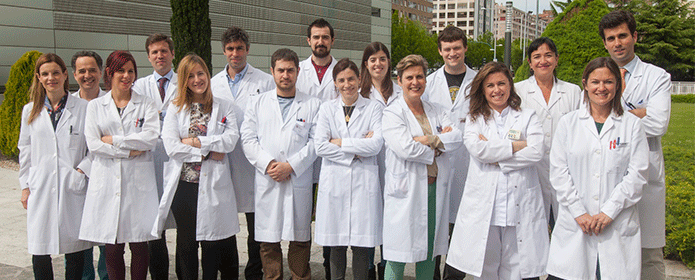Virus against the most aggressive childhood brain tumors
Researchers at Cima and Clínica Universidad de Navarra and UT MD Anderson Cancer Center demonstrate that Delta 24-RGD adenovirus increases survival and antitumor effect in animal models of the most common gliomas.

Researchers from the Cima and UT MD Anderson Clínica Universidad de Navarra and UT MD Anderson have shown that administration of the adenovirus Delta 24-RGD (the cold virus) increases survival and antitumor effect in animal models of gliomas. The results, published yesterday in the scientific journal Nature CommunicationsThe results, published yesterday in the scientific journal, have led to the development of a clinical essay at Clínica Universidad de Navarra to confirm these results in patients.
Gliomas are the most aggressive pediatric brain tumors. Due to their location, they have a very poor prognosis, so there is an urgent need to find effective treatments for patients. "Our work is based on the use of oncolytic viruses, which have two specific modifications: they allow them to replicate specifically in cancer cells and increase the potency to infect these cancer cells," explains Dr. Marta Alonso, manager of the Pediatric Solid Tumors Program at Cima and Clínica Universidad de Navarra and coordinator of this international study.
Specifically, the scientists have tested the Delta 24-RGD virus in tumor lines derived from patients with diffuse glioma stem tumors and pediatric high-grade glioma Degree . According to Dr. Naiara Martínez Vélez, researcher at Cima and Clínica Universidad de Navarra and first author of the study, "we analyzed the expression of the receptors that these viruses need to infect the cells, their replication and antitumor power in vitro and obtained very good results. We subsequently confirmed these data in immunosuppressed in vivo models".
A previous clinical essay conducted by Drs. Juan Fueyo and Candelaria Gómez-Manzano, at the UT MD Anderson Cancer Center in Houston (United States), demonstrated the efficacy of the oncolytic virus in high Degree adult gliomas. "They saw that there was a high percentage of lymphocyte infiltration in the tumor after virus administration, in agreement with the mechanism of action of oncolytic viruses. In other words, the virus not only has an antitumor potential, but also triggers an immune response in the organism," explains Dr. Martínez Vélez.
Researchers at the University of Navarra repeated this procedure in models of diffuse glioma of the stem and found that it increases therapeutic efficacy. "On the one hand, survival is improved and, on the other, an antitumor effect is obtained. Our data suggests that the virus triggers the immune response and is capable of recognizing tumor cells and rejecting them," they say.
The next step is to confirm these results in a clinical essay that is open at Clínica Universidad de Navarra combining immunotherapy and radiotherapy. "In addition, at laboratory of Cima we are developing new viruses, armed with immunostimulatory molecules, that enhance this immune response to improve the antitumor response," conclude Drs. Alonso and Martínez Vélez.
The work led at Cima and Clínica Universidad de Navarra, whose authors belong to the high school de research Sanitaria de Navarra (IdiSNA) and the CIBER de Cáncer (CIBERONC), has been carried out at partnership with researchers from the United States, United Kingdom and France.
-
reference letter bibligraphy: https://www.nature.com/articles/s41467-019-10043-0
